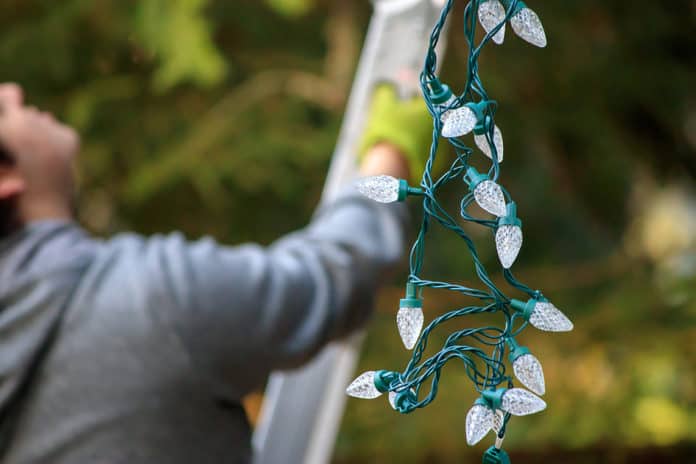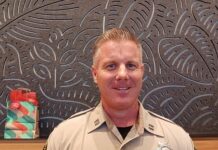While the holidays are filled with celebration and joy, they also are associated with accidents and injury resulting in unexpected visits to the local emergency department or trauma center.
People are installing decorations, lighting candles, celebrating at parties and drinking more alcohol.
“About 15,000 people annually suffer injuries related to holiday decorations,”
says Vishal Bansal, MD, director of trauma surgery at Scripps Mercy Hospital San Diego. “That amounts to 250 injuries each day during the holiday season, with nearly 5,800 of those people ending up in hospital ERs.”
Surprising seasonal statistics
Each year more than 400 home fires are started with Christmas trees or holiday lights, causing 20 deaths and $25.3 million in damage. And about a third of accidental injuries are due to falls from a roof or ladder while putting up lights or decorations. That’s why Walter Biffl, MD, Scripps Clinic trauma surgeon and medical director of trauma and acute care surgery at Scripps Memorial Hospital La Jolla, urges taking every precaution if you’re venturing onto elevated surfaces.
“Make sure your ladder is sturdy and have someone to help,” he says, “so if you drop the lights you’re not leaning over.”
Other common holiday-related injuries include:
· Electrocution from plug-in decorations
· Burns from fires caused by candles, electric decorations, fireplaces or deep-frying turkeys
· Pedestrian accidents
· Children choking on small parts of toys
· Children injured while testing new bicycles, skates or skateboards – often without a helmet
Dr. Biffl notes that the higher volume of holiday traffic, often combined with alcohol consumption, causes increased car accidents.
“The stats on motor vehicle crashes are remarkable,” he says. “There are spikes year after year. Around the holidays, we tend to be looser in policing our friends and ourselves. It’s something to be mindful of.”
Holidays also linked with rise in cardiac emergencies and intentional injuries.
Dr. Bansal says a number of studies have found a significantly higher incidence of heart attacks and cardiac deaths in November and December when compared with the summer months. In fact, one large study found that more cardiac deaths occurred on Dec. 25 than any other day in the year. Coming in second and third were Dec. 26 and Jan. 1.
“While we don’t know exactly why this is the case, possible reasons include changes in diet, alcohol consumption, increased stress and lack of attention to signs and symptoms of a heart attack,” he explains.
Dr. Bansal says that physical abuse and suicide also spike this time of year. Around New Year’s Eve, nonaccidental violent injuries are frequently caused by fights.
“Part of it is alcohol,” he says, noting that people should limit alcohol consumption. “But this is also the time of year when there are reminders of family dysfunction or psychiatric issues, and depression and loneliness surface. If you’re feeling depressed, seek help.”
How to prevent common holiday accidents and injuries:
· Exercise extreme care around ladders, roofs and elevated surfaces
· Never use damaged electrical cords, and always unplug cords when not in use
· Never drink and drive
· Place candles on heat-resistant surfaces away from any flammable materials
· Minimize your stress and seek help for depression
Where to go for care
Injuries don’t have to ruin your holiday season. If you need medical care after a fall, cooking mishap or other type of accident, you’ll find expert care at Scripps locations throughout San Diego County. These include:
· Walk-in care at more than a dozen Scripps HealthExpress locations
· Three urgent care centers
· Four emergency rooms
And of course, if you’ve suffered a life- or limb-threatening injury and it’s not safe to drive yourself to the emergency room, don’t hesitate to call 9-1-1.
Healthy Life is brought to you by the physicians and staff of Scripps Health. For more information, or for a physician referral, visit www.scripps.org or call 1-800-Scripps.



















